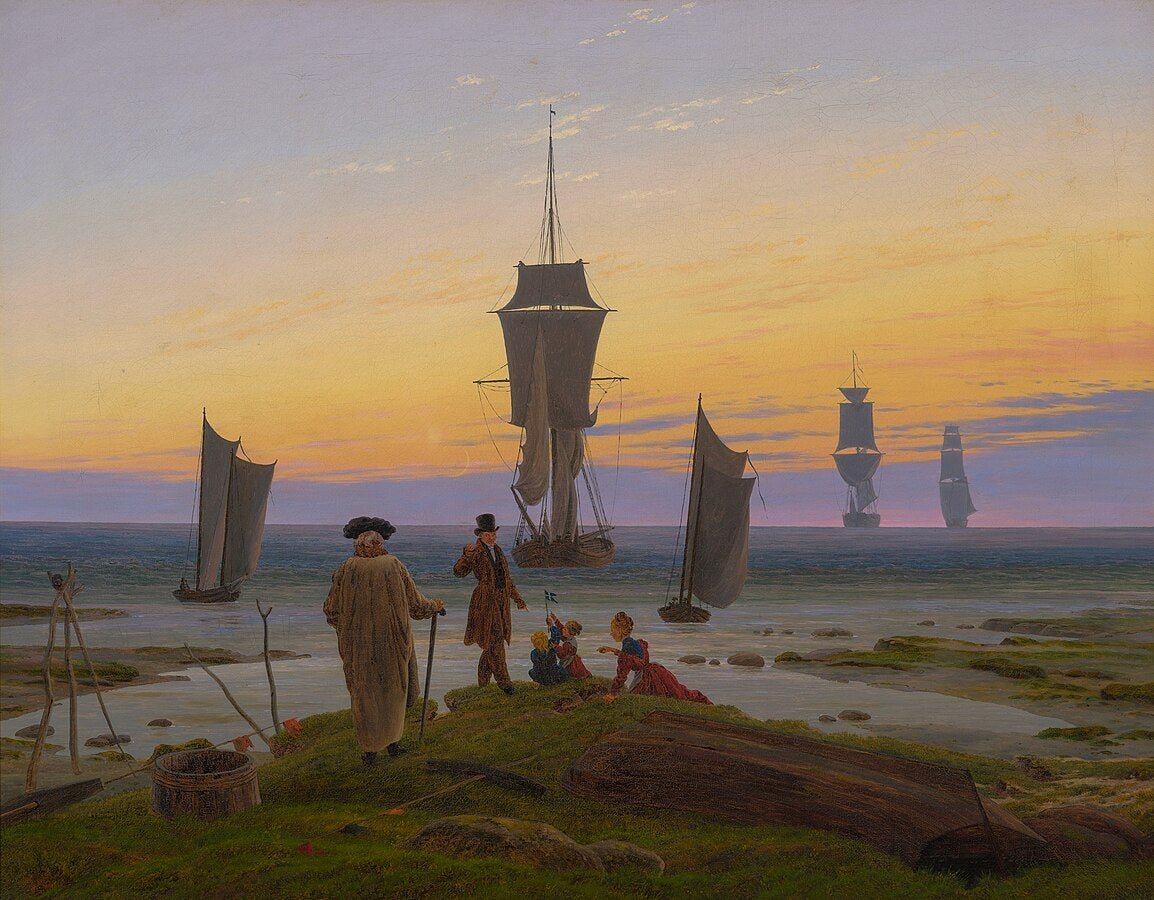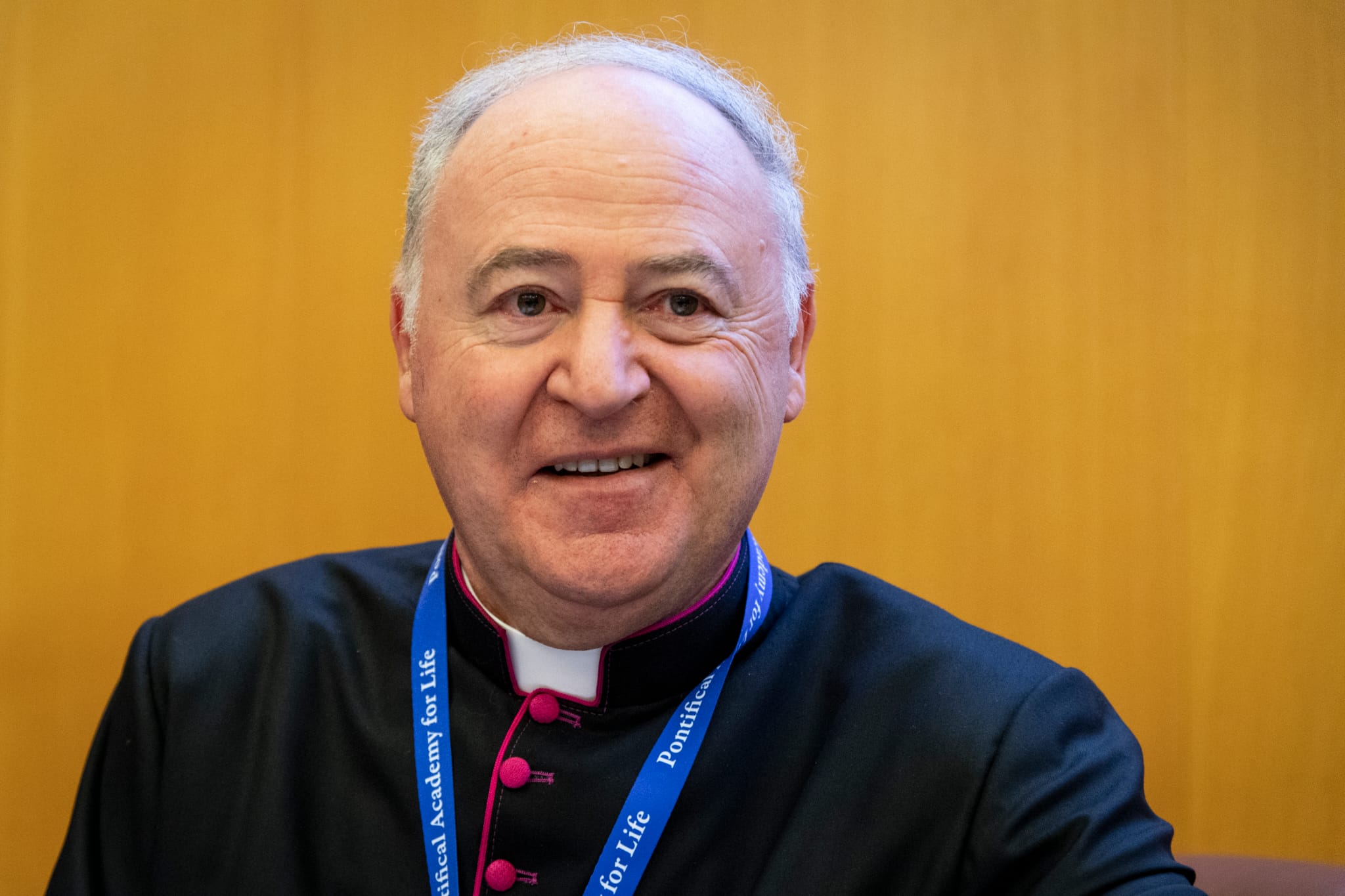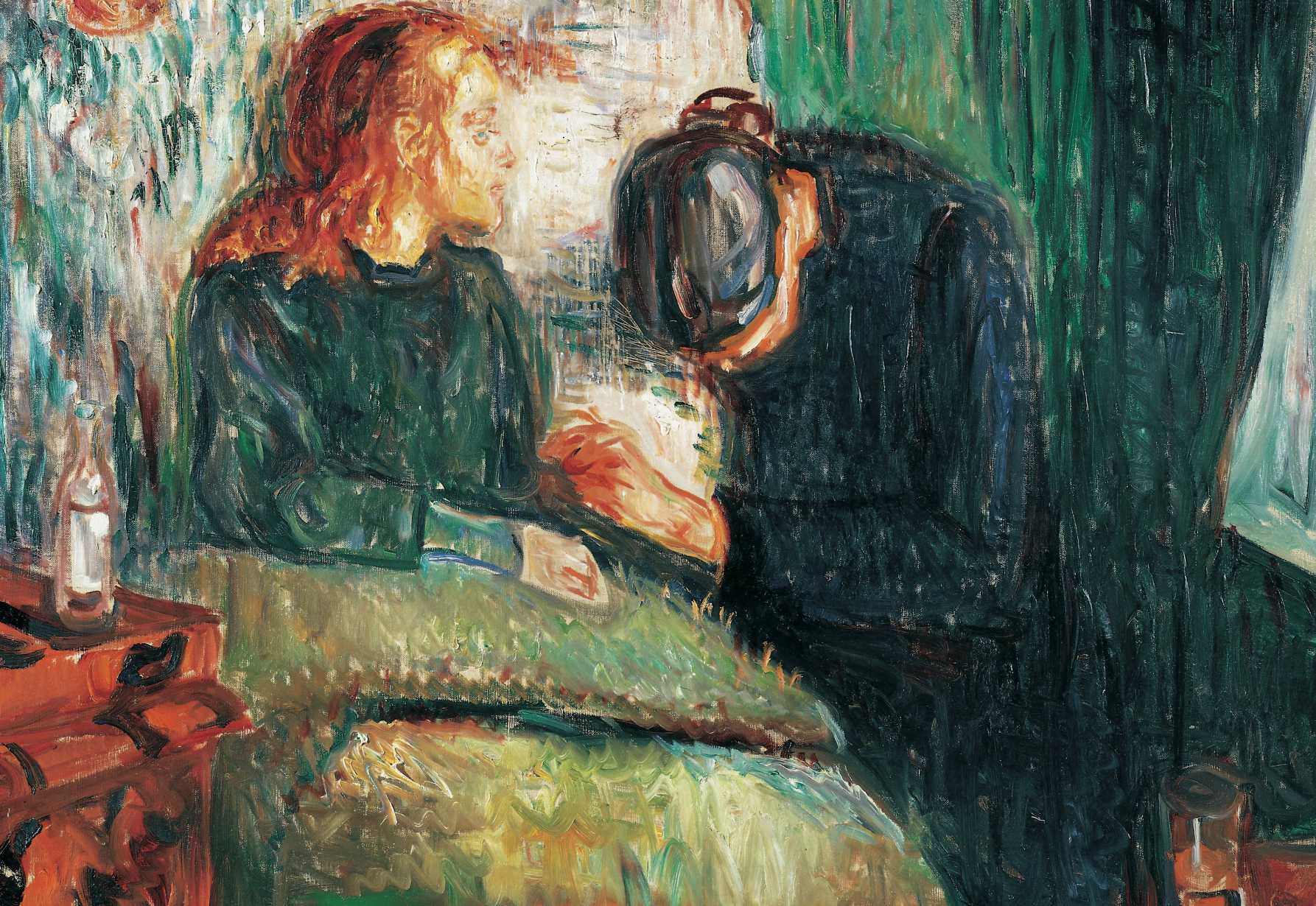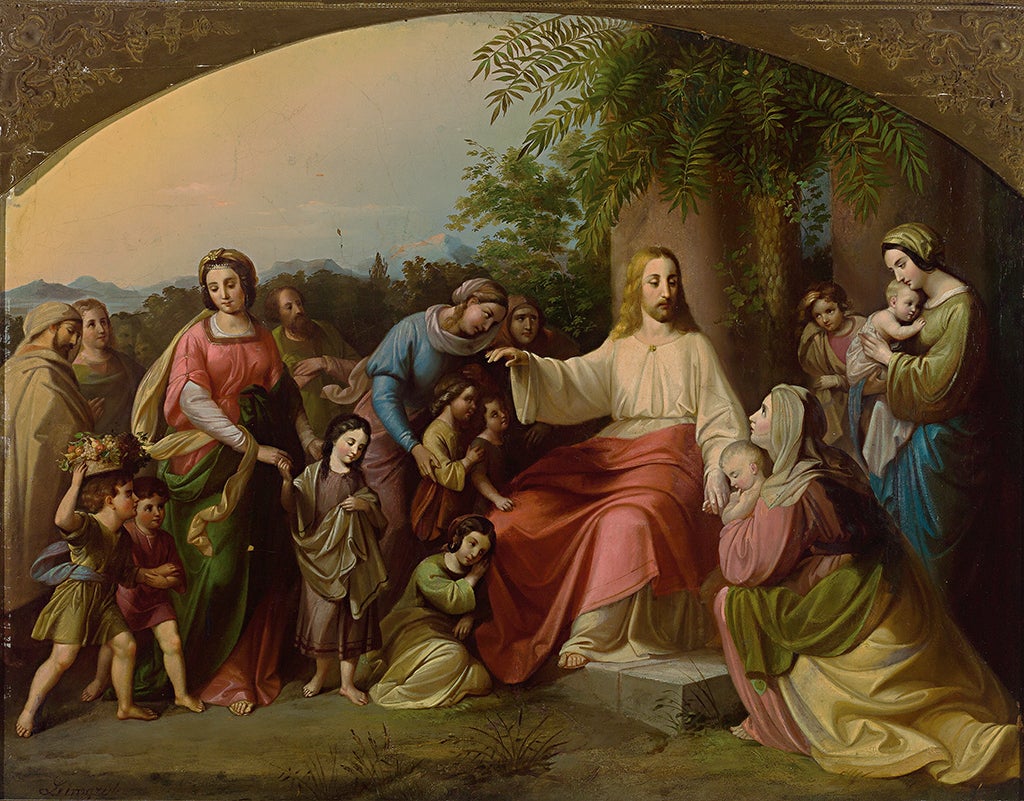VATICAN CITY (CNS) — One of Pope Leo XIV’s early appointments was naming Msgr. Renzo Pegoraro to be the new president of the Pontifical Academy for Life.
The 66-year-old monsignor is a bioethicist who earned a medical degree before entering the seminary, and he had served as chancellor of the academy since 2011 before succeeding Archbishop Vincenzo Paglia as president at the end of May.
Msgr. Pegoraro earned his medical degree from the University of Padua, Italy, in 1985, before earning a degree in moral theology from the Pontifical Gregorian University in Rome. He was ordained to the priesthood in 1989.
He earned an advanced degree in bioethics from Italy’s Catholic University of the Sacred Heart and has taught bioethics at the Theological Faculty of Northern Italy and served as secretary-general of Padua’s Lanza Foundation, a center for studies in ethics, bioethics and environmental ethics. He taught nursing ethics at the Vatican-owned Bambino Gesù Pediatric Hospital in Rome and was president of the European Association of Centers for Medical Ethics from 2010 to 2013.
Catholic News Service reached out to Msgr. Pegoraro for an interview in July. He took time out of a trip outside of Rome to respond to our questions. His written responses are translated from the original Italian.
– – –
Congratulations on your appointment. Did Pope Leo XIV say anything to you about your appointment or give you any indications and insight as to the priorities or the role the academy can play in his ministry?
The recommendations are to continue the work of discussion and dialogue with experts from various disciplines on the challenges facing humanity on the theme of life and the quality of life in different contexts. And without forgetting issues related to the beginning and end of life, as well as environmental sustainability, equity in healthcare systems, the right to care, health and essential services. We live in a difficult landscape, marked by advancing technologies but also by conflicts, and human life on the planet is truly challenged. The church has a wealth of wisdom and a vision to serve everyone in order to make the world a better and more livable place.
Do you know how the pope will approach the topic of AI — for example, an encyclical — and will your academy play a role in giving him input, the way the Dicastery for Integral Human Development helped Pope Francis with ‘Laudato Si”?
Pope Leo XIV demonstrated early on, with the choice of his name, that he is putting social issues and integral human development first. He has already spoken on several occasions about technological challenges and AI. In this sense, the Pontifical Academy for Life can make an important contribution to the development of the papal Magisterium, in line with all the dicasteries.
Will there be any follow-up to what came out of the seminar/study of the Theological Ethics of Life? How will the academy continue to explore and address topics like abortion, IVF, contraception and end-of-life issues?
The reflection of our academics continues. We are following the debates underway in different countries, as well as in Italy, where there is a law before parliament. The Pontifical Academy for Life supports and promotes palliative care, always and especially in the final and fragile phases of life, always asking that there be attention to and respect for the protection and dignity of people who are frail.
How can the church communicate its bioethical/life teachings better wherever there is a lot of debate or polarization?
This is a very important issue. We do our best to offer in-depth and articulate reflections. For example, our general assembly of academics, which includes an international conference, will address the sustainability of health systems in February 2026, with examples from five continents and detailed studies. We work this way: to offer a contribution; it is our desire to broaden collaboration as much as possible with everyone who is truly interested in the common good, believers and nonbelievers alike, in a spirit of mutual learning.
Will you continue to promote a transdisciplinary approach of dialogue with experts beyond the Catholic Church, much like the way the Pontifical Academies for the Sciences and Social Sciences operate? If so, how do you go about reassuring Catholics who wish the academy only had members and presentations that are aligned with church teaching? How do you avoid any so-called ‘confusion?’
The Pontifical Academy for Life, since its beginning, has been a place of study, dialogue, discussion and reflection among experts from different disciplines. And it has continued its work in the service of the church, to analyze developments in science and technology that have to do with human life and to always understand how to defend the dignity of the human person. In this sense, the church, in continuity, is always staying up-to-date, as the Second Vatican Council put it so well.
Tell me about being both a physician and a priest. Are you the first president of the PAL who is a medical doctor? How do you balance what you saw and learned in the field — your clinical experience — with your ethical reasoning? Such as respecting a patient’s autonomy and respecting church teaching when it comes to assisted suicide or refusing aggressive treatment?
I remember that the first president, the late Dr. Jerome Lejeune, was a physician, a scientist of the highest class, worthy of a Nobel Prize for his studies. And later, Msgr. Ignacio Carrasco de Paula, who served as president from 2010 to 2016, is a medical psychiatrist and priest, a high-level expert in bioethics.
Having expertise in the medical field is a great help in having a more precise understanding of the findings and challenges that arise on an ethical level. But there is more than that, as you point out in your question. Today, in addition to scientific knowledge, there is a need for an ethical point of view and an awareness of the questions that come from patients, from those who are sick. The church can respond.
For example, on the issue of end-of-life, the church says ‘no’ to aggressive medical treatment — therapeutic obstinacy — and ‘yes’ to the use of palliative care to manage and reduce pain and suffering.
The studies and insights we have made in recent years are just as important on the topics of stem cells and biotechnology, neonatal screening, organ transplantation and innovations in digital medicine and health care technology. These are all efforts to better understand scientific developments so that we can put them at the service of people.
Could you better explain if there have been any changes or new recommendations when it comes to avoiding aggressive treatment and the requirement to provide food and hydration to individuals in a vegetative state? Where does the church draw the line between legitimate medical care and overreach?
The topic is very complex. We need to understand how to interpret treatments so that they may support and care for sick people. Every situation is to be evaluated on a case-by-case basis so that they support the sick person and are not a source of further suffering. That is why there are no ready-made solutions; instead, an approach of constant dialogue between doctor, patient and family members must be fostered.
How do you ensure the ethical frameworks being proposed are not just “Western,” but also include all realities across the globe? There is a lot of attention on first-world issues like IVF or assisted suicide, and yet many people in the world are dying because of a lack of nutrition, clean water and basic medical care….
This will be the theme of our international congress in February, as part of the general assembly of academy members. We want to end up with a strong call to understand that ‘health’ and health systems must provide answers centered on life in all contexts, in all social and political realms. In many countries, the lack of basic care, the lack of water and the lack of food pose so many problems. Added to this are conflicts, which cause further suffering. And so that is why we say ‘no’ to war, because today we need resources to make human beings live, not to build weapons and finance conflicts.
Your predecessor (Archbishop Vincenzo Paglia) helped spearhead the “Rome Call for AI Ethics.” How will the academy build on that, especially regarding AI in medicine?
Together with Catholic Physicians Throughout the World (F.I.A.M.C.), we are organizing an international conference in Rome Nov. 10-12 on “AI and Medicine: The Challenge of Human Dignity” (www.aimedicine.va), precisely to confront the changes introduced by AI. It is a way to enhance the “Rome Call for AI Ethics,” signed in 2020, a document that lays the foundations for an ethical use of AI, which impacts all areas: medicine, science, society and legislation.
As the population ages, the use of robots in eldercare is increasing. And robotics is making huge strides in helping those with disabilities, too. How do you navigate the benefits of robotics with ethical concerns about human connection and dignity?
The progress is extraordinary. We must never forget that the needs of the person who is sick and in need of help are the priority. That is what technology must serve: it must not become an end in itself, and we must not fall into a ‘technocracy.’ We want to put the person and his or her inherent dignity at the center.
As young people grow up in a world shaped by artificial intelligence and social media, how can they learn to make ethical decisions about technology that has such a big impact on their mental health and relationships?
Change has already happened, both because these tools, such as smartphones, have already made it into the hands of the very young and because of the impact they have on cognitive function. There needs to be a debate on the use of technology that includes all facets of society. For example, families need to be helped with children and their relationship with technology. And schools have a major role to play in education.
Really, everything can be addressed if all of society — policy-makers, governments, the church, different organizations — put the issue of the use of technology at the forefront. Let’s also recall the recent contribution of the document, ‘Antiqua et nova,’ from the Dicasteries for the Doctrine of the Faith and Culture and Education, for an anthropological reflection that provides criteria for discernment on these issues. What is needed is ongoing, steady and high-level public debate. And the media also have a very important role in disseminating information and subject matter on this.
What is the single most urgent bioethical issue you would like to tackle and the biggest AI issue?
The topic of data management, its use and storage, the objectives of the so-called ‘Big Companies,’ (ed. note: Google, Apple, Facebook, Amazon, Microsoft, etc.) is crucial.
Today, we are talking about global bioethics: the topic of human life must be posed by looking at all dimensions of its development, at different social and political contexts, at its connection with respect for the environment, and by scrutinizing how technologies either help us live more fully and better or (hurt us by) providing terrible tools for control and manipulation. This is why the topic of ‘data’ is key. Today, the wealth of big industries is the data we ourselves put on the internet.
We need a public debate on a global scale, a grand coalition aimed at the respect of data. The European Union has taken up the issue, and it is also being studied at the United Nations. But it is not enough. A global debate is needed. The framework is clear and Pope Francis gave it to us with “Fratelli Tutti,” expanding on Vatican II: we are one human family, and the issues of development and life affect every one of us.





Leave a Reply
You must be logged in to post a comment.